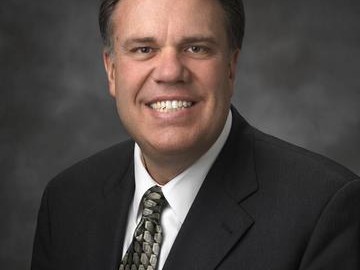It Isn’t a Sin to Be Weak
Limitations and inadequacies are not sins and do not keep us from being clean and worthy of the Spirit.
“Am I really worthy to enter God’s house? How can I be if I’m not perfect?”
“Can God really make my weakness into a strength? I’ve fasted and prayed for days to have this problem removed from me, but nothing seems to change.”
“In the mission field I lived the gospel more consistently than at any time in my life, but I have never been more aware of my shortcomings. Why, when I was being so good, did I sometimes feel so bad?”
As we ponder such questions, it is crucial to understand that while sin inevitably leads us away from God,weakness, ironically, can lead us toward Him.

Composite photograph by tibu and Givaga/iStock/Thinkstock
Distinguishing between Sin and Weakness
We commonly think of sin and weakness as merely different-sized black marks on the fabric of our souls, different severities of transgression. But the scriptures imply that sin and weakness are inherently different, require different remedies, and have the potential to produce different results.
Most of us are more familiar with sin than we care to admit, but let’s review: Sin is a choice to disobey God’s commandments or rebel against the Light of Christ within us. Sin is a choice to trust Satan over God, placing us at enmity with our Father. Unlike us, Jesus Christ was completely without sin and could atone for our sins. When we sincerely repent—including changing our mind, heart, and behavior; offering appropriate apologies or confessions; making restitution where possible; and not repeating that sin in the future—we can access the Atonement of Jesus Christ, be forgiven by God, and be clean again.
Becoming clean is essential because nothing unclean can dwell in God’s presence. But if our only goal were to be as innocent as we were when we left God’s presence, we would all be better off lying snugly in our cribs for the rest of our lives. Rather, we came to earth to learn by experience to distinguish good from evil, grow in wisdom and skill, live values we care about, and acquire the characteristics of godliness—progress we cannot make from the safe confines of a bassinet.
Human weakness plays an important role in these essential purposes of mortality. When Moroni worried that his weakness in writing would cause the Gentiles to mock sacred things, the Lord reassured him with these words:
“And if men come unto me I will show unto them their weakness. I give unto men weakness that they may be humble; and my grace is sufficient for all men that humble themselves before me; for if they humble themselves before me, and have faith in me, then will I make weak things become strong unto them” (Ether 12:27; see also 1 Corinthians 15:42–44; 2 Corinthians 12:7–10; 2 Nephi 3:21; and Jacob 4:7).
The implications of this familiar scripture are profound and invite us to distinguish sin (encouraged by Satan) from weakness (described here as a condition “given” to us by God).
We might define weakness as the limitation on our wisdom, power, and holiness that comes with being human. As mortals we are born helpless and dependent, with various physical flaws and predispositions. We are raised and surrounded by other weak mortals, and their teachings, examples, and treatment of us are faulty and sometimes damaging. In our weak, mortal state we suffer physical and emotional illness, hunger, and fatigue. We experience human emotions like anger, grief, and fear. We lack wisdom, skill, stamina, and strength. And we are subject to temptations of many kinds.
Though He was without sin, Jesus Christ joined us fully in the condition of mortal weakness (see 2 Corinthians 13:4). He was born as a helpless infant in a mortal body and raised by imperfect caretakers. He had to learn how to walk, talk, work, and get along with others. He got hungry and tired, felt human emotions, and could get ill, suffer, bleed, and die. He was “in all points tempted like as we are, yet without sin,” subjecting Himself to mortality so He could “be touched with the feeling of our infirmities” and succor us in our infirmities or weaknesses (Hebrews 4:15; see also Alma 7:11–12).
We cannot simply repent of being weak—nor does weakness itself make us unclean. We cannot grow spiritually unless we reject sin, but we also do not grow spiritually unless we accept our state of human weakness, respond to it with humility and faith, and learn through our weakness to trust in God. When Moroni fretted about the weakness of his writing, God did not tell him to repent. Instead, the Lord taught him to be humble and to have faith in Christ. As we are meek and faithful, God offers grace—not forgiveness—as the remedy for weakness. Grace is an enabling power from God to do what we cannot do on our own (see Bible Dictionary, “Grace”)—the appropriate godly remedy by which He can “make weak things become strong.”
Exercising Humility and Faith
From early on in our Church experience, we are taught the essential elements of repentance, but how exactly do we foster humility and faith? Consider the following:
- Ponder and pray. Because we are weak, we may not recognize if we are dealing with sin (calling for an immediate and pervasive change of mind, heart, and behavior) or with weakness (calling for humble, sustained effort, learning, and improvement). How we view these things can depend on our upbringing and maturity. There may even be elements of both sin and weakness in a single behavior. Saying a sin is really a weakness leads to rationalizing instead of repenting. Saying a weakness is a sin can result in shame, blame, despair, and giving up on God’s promises. Pondering and praying help us make these distinctions.
- •Prioritize. Because we are weak, we cannot make every needed change all at once. As we humbly and faithfully tackle our human weakness a few aspects at a time, we can gradually reduce ignorance, make good patterns habitual, increase our physical and emotional health and stamina, and strengthen our trust in the Lord. God can help us know where to begin.
- •Plan. Because we are weak, getting stronger will require more than a righteous desire and lots of self-discipline. We also need to plan, learn from mistakes, develop more effective strategies, revise our plans, and try again. We need help from scriptures, relevant books, and other people. We start small, rejoice in improvement, and take risks (even though they make us feel vulnerable and weak). We need supports to help us make good choices even when we are tired or discouraged and plans for getting back on track when we slip.
- •Exercise patience. Because we are weak, change may take time. We don’t just renounce our weakness the way we renounce sin. Humble disciples willingly do what’s required, learn resilience, keep trying, and do not give up. Humility helps us have patience with ourselves and with others who are weak too. Patience is a manifestation of our faith in the Lord,gratitude for His confidence in us, and trust in His promises.
Even when we sincerely repent of our sins, obtainforgiveness, and become clean again, we remain weak. We are still subject to illness, emotion, ignorance, predispositions, fatigue, and temptation. But limitations and inadequacies are not sins and do not keep us from being clean and worthy of the Spirit.
Weakness to Strength

Composite photo illustration by littlehenrabi and Givaga/iStock/Thinkstock
While Satan is eager to use our weakness to entice us to sin, God can use human weakness to teach, strengthen, and bless us. Contrary to what we might expect or hope, however, God does not always “make weak things become strong” unto us by eliminating our weakness. When the Apostle Paul prayed repeatedly for God to remove a “thorn in the flesh” Satan used to buffet him, God told Paul, “My grace is sufficient for thee: for my strength is made perfect in weakness” (2 Corinthians 12:7, 9).
There are many ways the Lord makes “weak things become strong.” While He may eliminate the weakness through the dramatic cure we hope for, in my personal experience this is somewhat rare. For example, I see no evidence that God eliminated Moroni’s weakness in writing after the famous verse in Ether 12. God may also make weak things strong by helping us work around our weaknesses, gain an appropriate sense of humor or perspective about them, and improve on them gradually over time. Also, strengths and weaknesses are often related (like the strength of perseverance and the weakness of bullheadedness), and we can learn to value the strength and temper the weakness that goes with it.
There is another, even more powerful way that God makes weak things strong unto us. The Lord says to Moroni in Ether 12:37, “Because thou hast seen thy weakness thou shalt be made strong, even unto the sitting down in the place which I have prepared in the mansions of my Father.”
Here God is not offering to change Moroni’s weakness, but to change Moroni. By tackling the challenge of human weakness, Moroni—and we—can learn charity, compassion, meekness, patience, courage, long-suffering, wisdom, stamina, forgiveness, resilience, gratitude, creativity, and a host of other virtues that make us more like our Father in Heaven. These are the very qualities we came to earth to hone, the Christlike attributes that prepare us for the mansions above.
Nowhere is God’s love, wisdom, and redemptive power more evident than in His ability to turn our struggle with human weakness into the invaluable godly virtues and strengths that make us more like Him.
The Promise of the Atonement

“Restoring what you cannot restore, healing the wound you cannot heal, fixing that which you broke and cannot fix is the very purpose of the atonement of Christ. …
“I repeat, save for the exception of the very few who defect to perdition, there is no habit, no addiction, no rebellion, no transgression, no apostasy, no crime exempted from the promise of complete forgiveness. That is the promise of the atonement of Christ.”
President Boyd K. Packer, President of the Quorum of the Twelve Apostles, “The Brilliant Morning ofForgiveness,” Ensign, Nov. 1995, 19–20.



